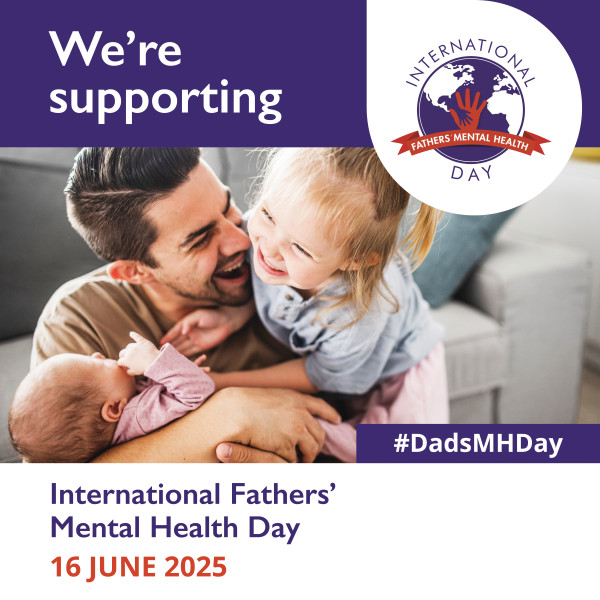The Silent Struggle: Dads and Mental Health
When we think of mental health and parenthood, most of the emotional spotlight tends to fall on mothers, given the physical and psychological demands they face. Due to this, the mental health of dads is often left unspoken.
For generations, men have been conditioned to “man up”, “stay strong” or “push through”. Often, fatherhood becomes a stage where dads feel pressure to be the providers and protectors, leaving their own mental health behind.
Research has found that approximately 1 in 10 new dads experience postpartum depression and many more deal with anxiety, stress, and challenges with identity during the transition to parenthood. Unfortunately, lack of awareness and the stigma which comes with men and mental health prevents fathers from seeking support.
Fatherhood can trigger a range of emotional and psychological stressors:
Sleep deprivation – Broken sleep can impact mood, concentration and emotional regulation. The Sleep Charity offers advice on improving sleep quality for new parents.
Financial pressure – Providing for a growing family can lead to significant stress, especially during the current cost of living crisis. MoneyHelper offers budgeting tips for new parents.
Shift in Identity – Becoming a dad can change how a man sees himself, his career goals and social life.
Lack of support – People often ask how the mother and baby are doing but often forget to ask how the father is doing. Most of the time the emotional support is aimed at mums. Family Lives offers support for both parents.
Relationship changes – Relationship dynamics often change after having a baby. New parents can often feel like they are ‘passing ships in the night’ and rarely have time for each other, intimacy and communication. Relate offers counselling for couples adjusting to new parenthood.
Partner’s mental health struggles - Supporting a partner with postnatal depression can be overwhelming. PANDAS Foundation supports families dealing with perinatal mental health challenges.
Previous mental health problems: Partners with pre-existing conditions may see symptoms worsen. Mind provides resources for those experiencing recurring mental health issues.
It’s okay not to be okay...
The first step in improving dads’ mental health is to normalise the conversation. It’s okay for dads to talk openly about feeling overwhelmed, anxious and stressed so that they do not make it worse by bottling it up and isolating themselves.
Vulnerability isn’t weakness – it’s a form of strength. Whether its talking to a partner, joining a support group, or speaking with a therapist, reaching out for help shows courage not failure.
Supporting dad’s mental health
Check in – If you’re a partner, friend, or family member, ask the dad in your life how he’s doing—without judgment.
Build a village – Encourage connection with other dads, whether through community groups, online forums, or parenting classes.
Promote balance – Share parenting responsibilities in a way that allows both parents to rest, recharge, and feel competent.
Seek professional help – Therapy isn’t just for crisis moments. It can be a proactive tool for managing stress, processing change, and building resilience.
A message to the dads reading this…
Your mental health matters.
You don’t have to have all the answers. You don’t have to be perfect. It’s okay to ask for help. Being a dad is one of the most meaningful roles you'll ever take on—but it doesn't mean you have to sacrifice your own well-being in the process.
Let’s change the narrative. Let’s make space for dads to be whole, healthy, and heard.
Here are some useful resources below:


